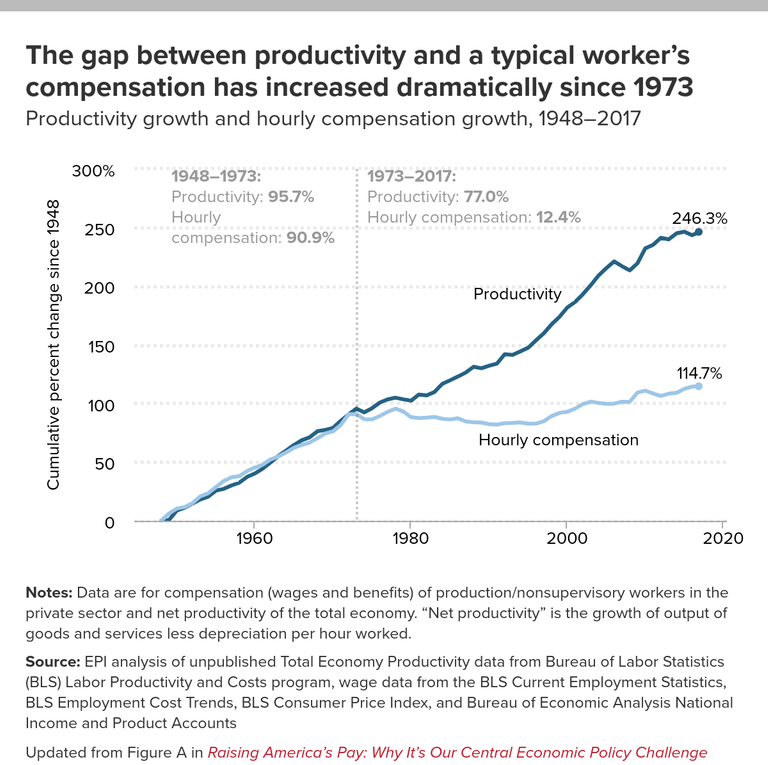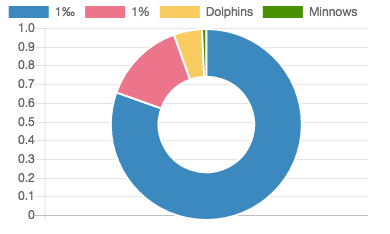@voronoi recently asked:
"How do you think the blockchain era will impact our traditional 9-5 Monday through Friday work culture? Is the global 24/7 nature of this marketplace something that will end the "workweek" as we know it? We've already seen quite a lot of jobs, gigs, and commission projects being developed out of Steem. What do you think?"
The blockchain era will work to fill any needs left open by a traditional economy. That traditional 9-5, Monday through Friday career assumes working 40 hours per week at a constant wage. Some of the booming popularity of profitable blockchain technologies in the United States might be explained by the ongoing depression of workers' wages compared to their productivity:

Since the 70's, wages have not kept pace with the value of the labor being done. The dissatisfaction created by wage stagnation may drive people to experiment with cryptocurrency in addition to or instead of their traditional 9-5.
The story of wage depression in the US would not be complete without understanding where created wealth has gone, or who has had bargaining power throughout this change:

When nationwide union membership was at its highest points, income going to the wealthiest 10% of the population was at its lowest. Now, with union membership lower than ever, the share of income going to the top 10% is at its highest in recorded US history.
Based on the above graphs its no surprise that unions and their powers to collectively bargain have been instrumental in fighting for higher wages both in the past and present.
In imagining the blockchain era as a disruptor of traditional work, some sort way to collectively bargain on platforms like Steem must be theorized. One way collective action might work on Steem is if a community with similar goals is able to pool their voting power and wield it to achieve a unified goal, such as supporting each other with upvotes. I believe that incubators like @sndbox build the potential for collective bargaining on a platform like Steem by fostering a community and working to create wealth within it.

Graph of Steem distribution by Steem ownership percentile from SteemWhales.
(1‰ = the wealthiest 0.01% of users.)
Another feature of envisioning collective bargaining on Steem is that dolphins and minnows on this platform do not necessary generate that much of the platform's wealth compared to the top 1%. While unions very clearly represent workers whose labor is necessitated by their bosses, the work done by dolphins and minnows may not be at all necessary to the whales of Steem, and therefore there could be no meaningful equivalent of a workers strike on this platform.
What do you think collective bargaining might look like on Steem?

Oh, that's such a great question to ponder! To consider it, I wonder what would be the agenda of a meeting in a digital version of a union hall? What collective actions could possibly threaten or at least get serious attention of the 1%?
Making a lot of publicity around a collective issue could get attention, but the issue is that it could lower the value of Steem, which would be pretty bad for everyone on this platform (and earn the issue-pushers a lot of hate). Other than small accounts using their own power to promote each other... that's all I can think of and it doesn't seem like a great idea.